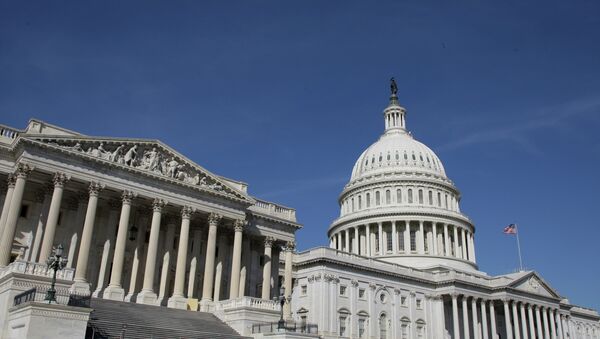Editor-in-chief of the RT broadcaster and Sputnik news agency Margarita Simonyan on Tuesday ironically responded to Huntsman for his "idealistically" commenting.
"Starry-eyed idealism of US ambassadors makes me smile," Simonyan said in an RT comment.
Earlier on in the day, the US Department of State spokesperson Heather Nauert said the US Congressional Press Galleries that reached the decision on RT is made up of reporters not members of Congress.
"We can’t take responsibility for the actions of private entities, other organizations," she stated. "I can only speak on behalf of the US government."
"We think that that is wrong," Nauert said on Tuesday when asked about Russia's move, which came in response to the US government decision to impose similar restrictions on Russian media operating in the United States.
Nauert added the United States was concerned that Russia's decision could lead to harassment of journalists.
"We are concerned that they [Russia] could end up harassing reporters, detaining reporters, kicking reporters out of the country," Nauert said. "That is something we believe fundamentally as Americans is wrong. We believe in the right to free speech, and we have serious concerns about Russia’s activities to clamp down on press freedoms."
"That is something we believe fundamentally as Americans is wrong. We believe in the right to free speech, and we have serious concerns about Russia’s activities to clamp down on press freedoms," she said.
Earlier on in the day, the Russian Justice Ministry included nine media outlets on the list of foreign agents. The list now includes the Voice of America broadcaster; Kavkaz.Realii, Krym.Realii, Sibir.Realii, Idel.realii media outlets; the Current Time broadcaster; the Radio Free Europe/Radio Liberty broadcaster; Tatar-Bashkir edition of Radio Liberty (Azatliq Radiosi); and the Factograph project.
Earlier, the Committee on Rules and Organization of the Russian Parliament supported a draft proposal that would see the lower house respond in kind to the US Congress stripping the Russian RT broadcaster of accreditation, and not allow US media outlets designated as foreign agents to access the Duma.
Russian media outlets, including RT and Sputnik, have faced increasing pressure in the United States over year, with US lawmakers and the intelligence community claiming that they may have been involved in Russia’s alleged attempts to influence the 2016 US presidential election.
The US Justice Department forced RT America to register on November 13 as a "foreign agent" in the United States under the 1938 Foreign Agents Registration Act.
RT and Sputnik, as well as Russian authorities, have repeatedly refuted all of the allegations as unsubstantiated.




